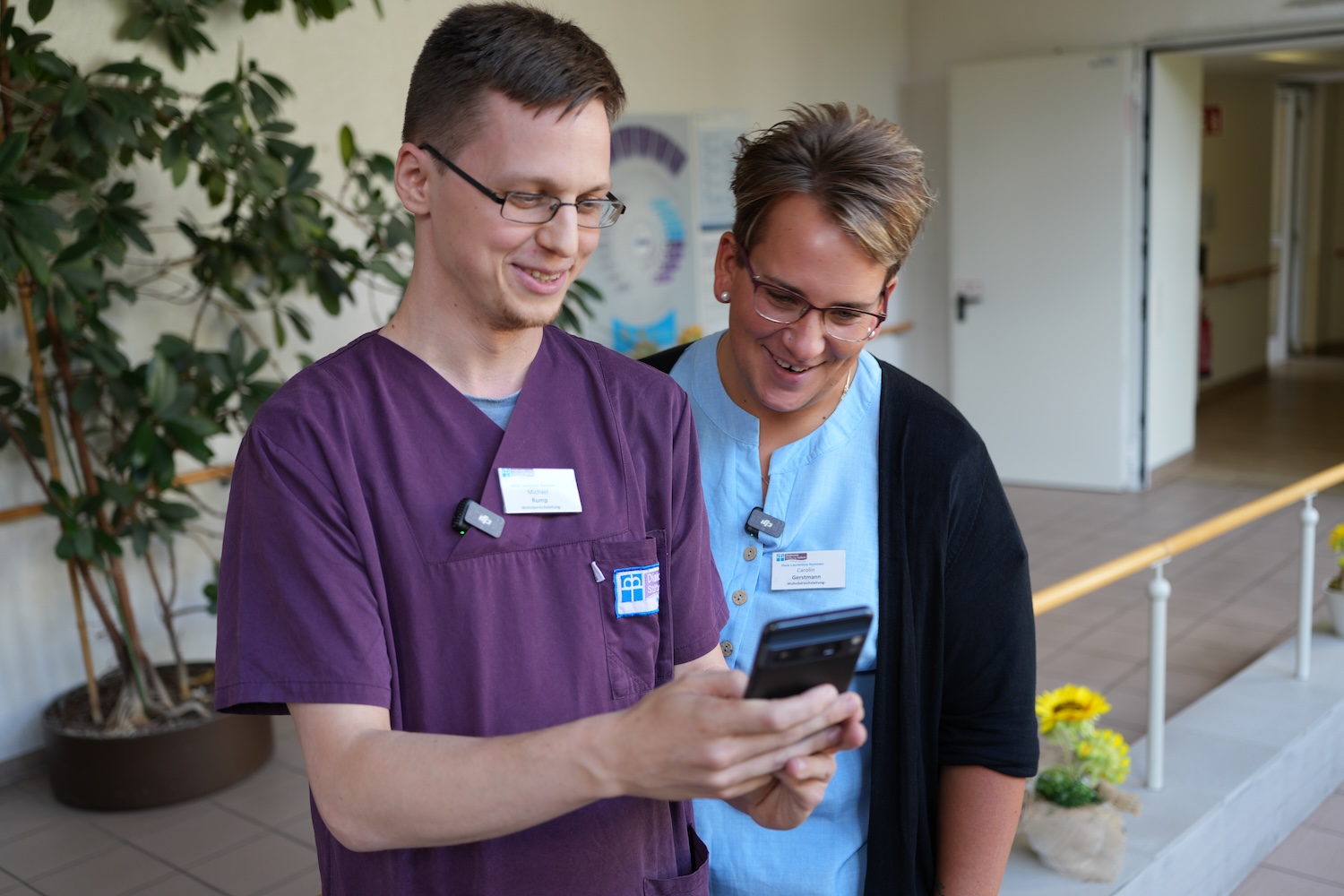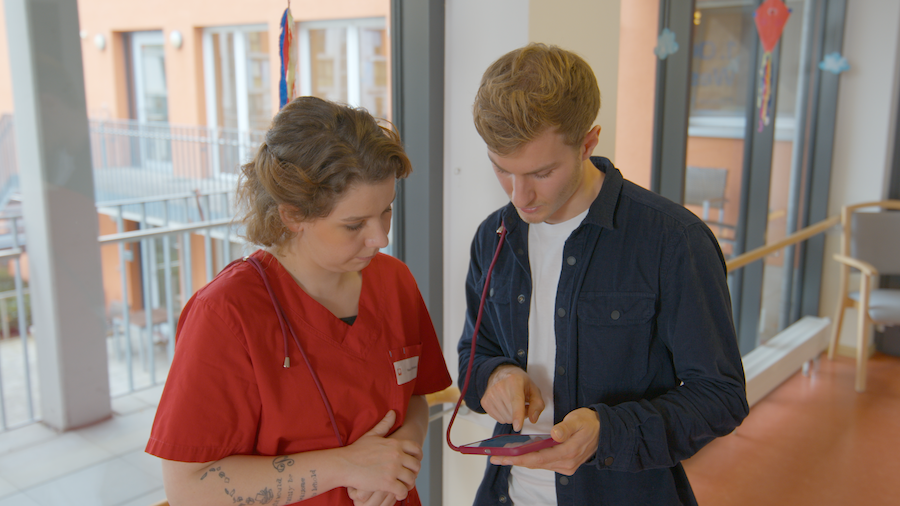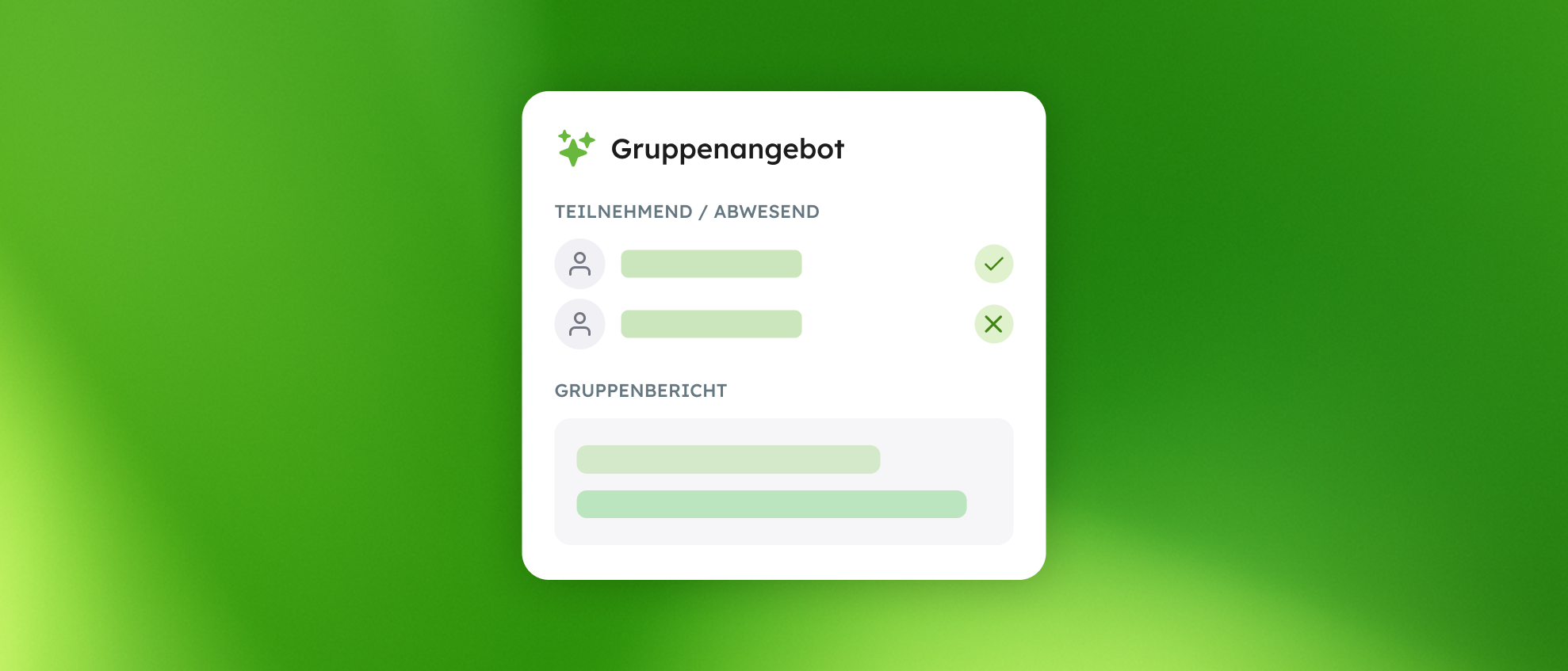Maintain instead of typing
From theory to practice? You can't wait until the end of your studies to put some good ideas into practice. The University of Potsdam's "Portal" magazine interviewed voize about this.

Heading
Heading
Heading
Lorem ipsum dolor sit amet, consectetur adipiscing elit. Suspendisse varius enim in eros elementum tristique. Duis cursus, mi quis viverra ornare, eros dolor interdum nulla, ut commodo diam libero vitae erat. Aenean faucibus nibh et justo cursus id rutrum lorem imperdiet. Nunc ut sem vitae risus tristique posuere.
Erik Ziegler, Marcel Schmidberger and Fabio Schmidberger founded voize while they were still studying. Their education also took them to the Digital Engineering Faculty at the University of Potsdam and the Hasso Plattner Institute. The university magazine introduces voize.
Text by Heike Kampe
The day-to-day work of nursing staff is filled with many tasks and can sometimes be very stressful: helping with dressing, taking blood pressure, handing out medication, washing, a friendly chat. They also spend a lot of time at the PC - because all work steps, health values and incidents have to be typed into the forms of the documentation software. This takes up valuable time that many would rather devote to those in need. Brothers Marcel and Fabio Schmidberger saw all of this when their grandfather moved into a care home in 2019. "Can we develop a digital solution to ease the burden?" asked the siblings, who were studying IT Systems Engineering at the Hasso Plattner Institute (HPI) and Software Engineering in Stuttgart at the time.
"Can we develop a digital solution to provide relief?"
Software that automatically creates care reports, protocols and vital signs entries via voice recognition on a smartphone and enters them into the central documentation system - the two of them and their fellow student Erik Ziegler set to work with this business idea and founded the company "voize" in 2020, while they were still studying.

Today, their product is not only ready for the market, but is already being used successfully: 35 care facilities across Germany use the app, and many more are interested. "The start-up is growing fast," emphasizes media scientist Lena Langer, who is responsible for public relations at "voize". "We already have 15 employees."
If you look at the figures in the care sector, it's hardly surprising: more than four million people were in need of care in 2022. This figure is set to rise in the coming years as society ages. The Ministry of Health predicts that 6.5 million people will need care by 2050. In contrast, there are many vacancies, a high workload and a pronounced shortage of skilled workers. Ideas for relieving the burden on carers are therefore in great demand. "Care staff spend up to 30 percent of their working time on documentation," says Lena Langer. This time can be significantly reduced with the app: "They always have their cell phone with them, press a button and speak into it. An AI with speech recognition converts the spoken word into text and automatically transfers it to the existing documentation system," she says, describing the principle of the "voize" app. This eliminates the need to walk to the ward PC and make entries by hand.
%201.png)
"The app has been very well received, the relief is clearly noticeable," says Lena Langer, summarizing the feedback so far. After one day of training and one to two weeks in practice, even the less tech-savvy are using the app routinely. The fact that they always have all their care data to hand on their cell phone and can call it up immediately - in the event of a medical emergency, for example - is another plus point. An effectiveness study funded by the Federal Ministry of Education and Research, in which the Charité hospital in Berlin is also involved, is currently investigating what difference "voize" technology actually makes in care.
To begin with, the IT experts first had to familiarize themselves with the field of nursing care. What does the everyday life of caregivers look like? What needs and wishes do they have for their work? And how could an app optimally support them? To this end, the team visited care homes, accompanied employees and spoke to the managers, learned about technical terms such as bedsores and what wound documentation must contain. "In the end, we realized that we needed an intuitive, easy-to-understand product that was simple to use and could be integrated into day-to-day care," explains Lena Langer. As people who work in care are often non-native German speakers, the speech recognition system must also be able to recognize accents well.
%201.png)
In 2022, "voize" received the Berlin Brandenburg Innovation Award, which is endowed with 10,000 euros and recognizes marketable and future-proof start-ups. The young company is also receiving support from Y Combinator - a Californian start-up center that supports promising start-ups with money, contacts and advice. "A very big milestone, because German start-ups are very rarely accepted into this program," emphasizes Lena Langer. The product is up and running, customers are satisfied and demand is high.

However, the working days at "voize" are by no means getting shorter and quieter as a result. "An app like this is never completely finished," says Langer with a laugh. The exchange with the nursing staff and their feedback are extremely important for further development. In addition, the founders are already putting out feelers for other possible areas of application for their product - such as for TÜV defect documentation. The app is currently in the pilot phase here. In addition to their start-up, Fabio and Marcel Schmidberger also have another major task to master in the coming months: the two 25-year-old founders are still writing their Master's thesis at HPI - their co-founder Erik Ziegler has already finished it.








